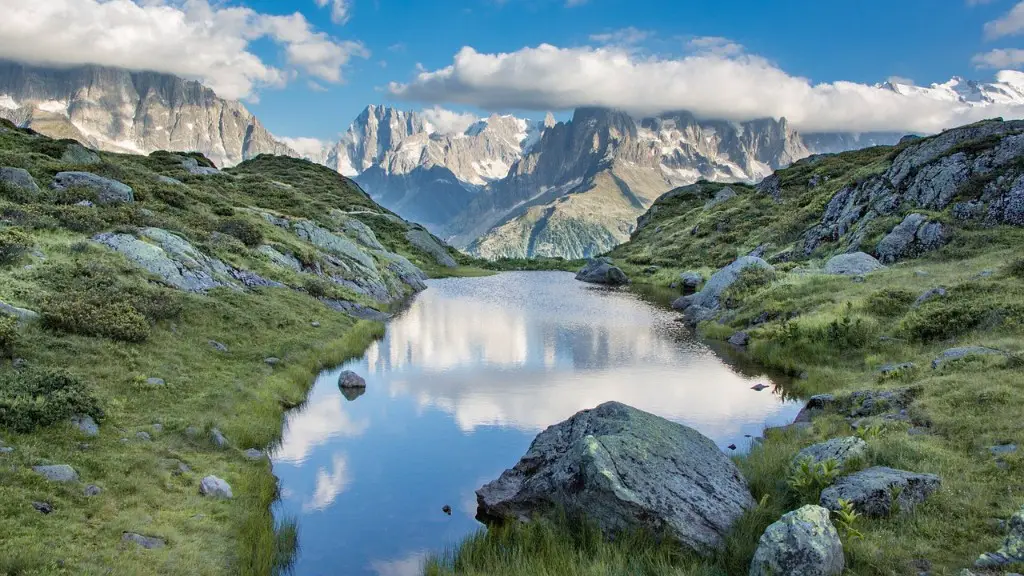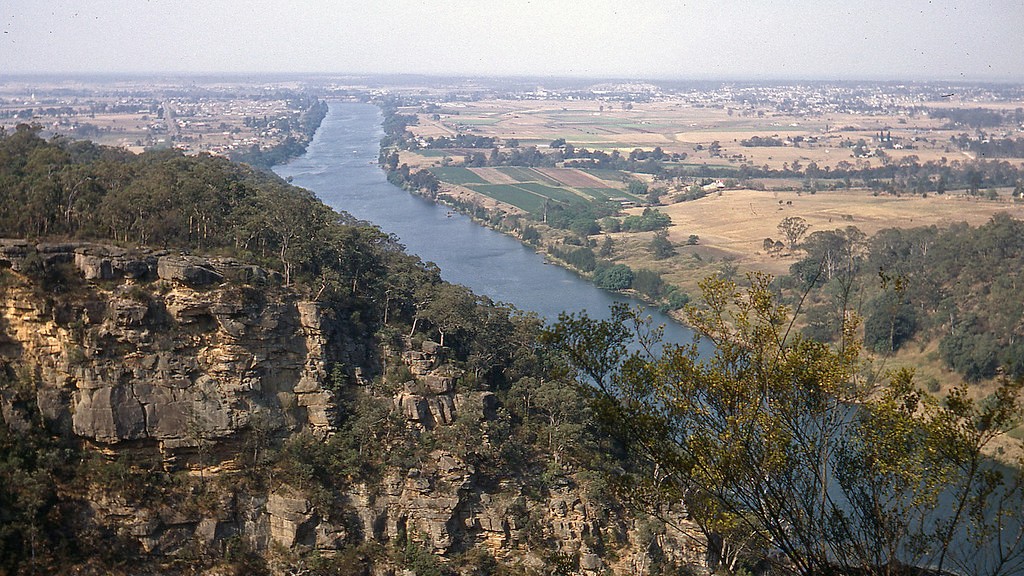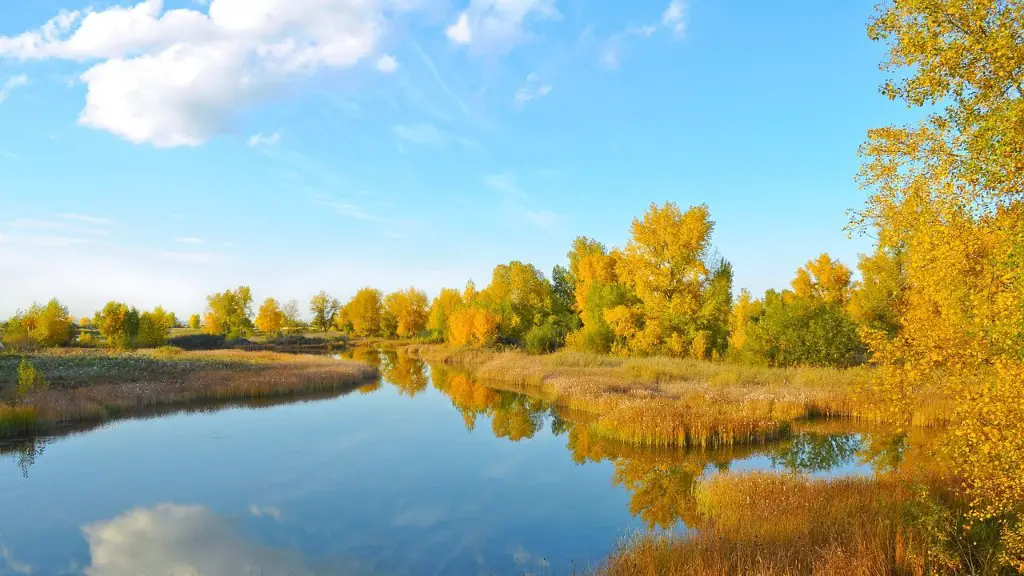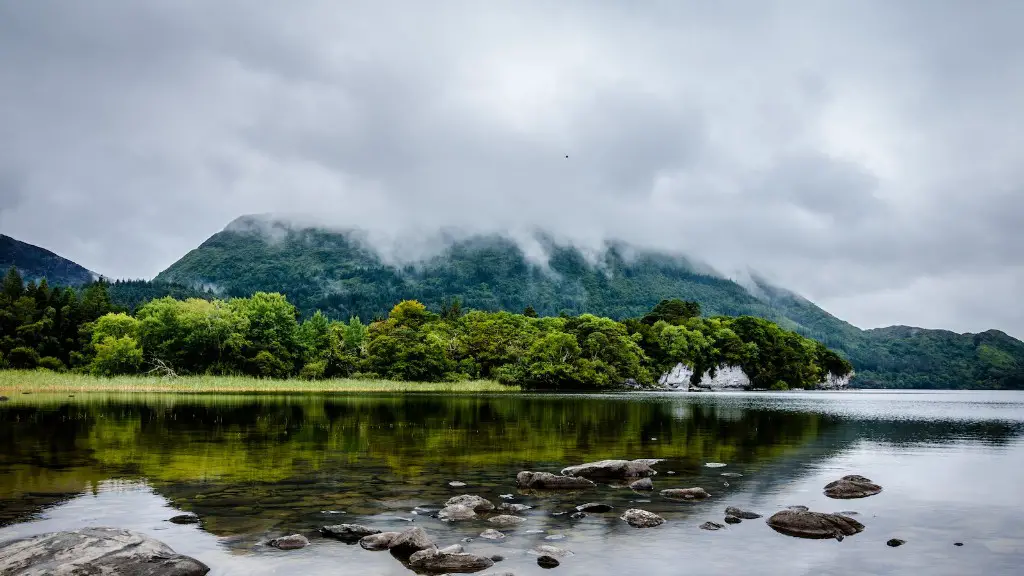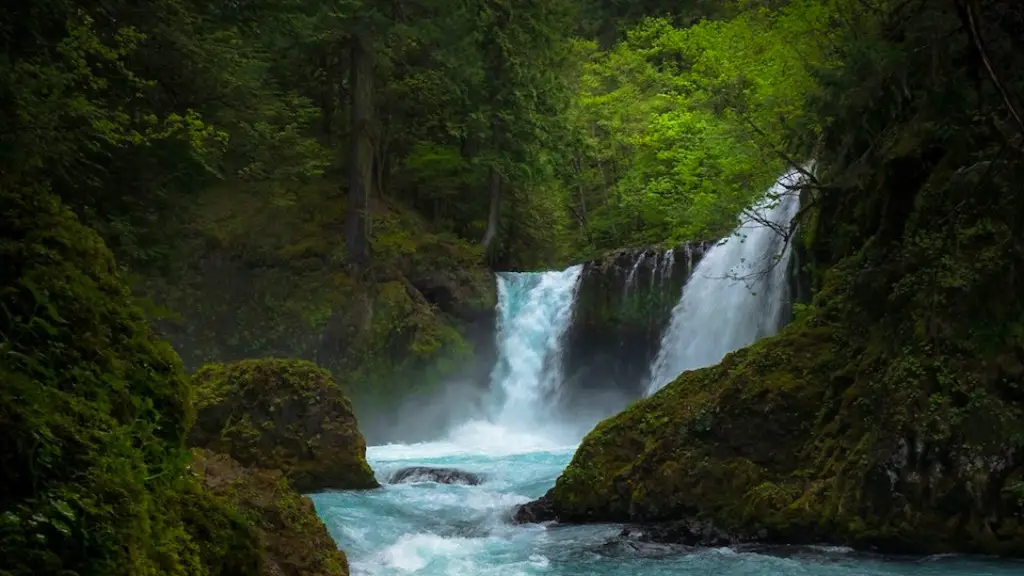As the largest river system in the country, the Mississippi River plays an incredibly important role in the lives of Americans, as it provides nutrients for agriculture, jobs to the economy, and serves well over 6 million people. Unfortunately, a major issue is that the river is being overused and is being drawn down at an unsustainable rate. This raises the question of what would happen if the Mississippi River runs dry.
In the simplest terms, if the Mississippi River runs dry, it would be the end of the river’s role as a source of food and water, a driver of economic activity, and a source of recreation. Many of the activities that rely on the river would be permanently lost, as well as its ability to support aquatic life.
In terms of aquatic life, the lack of water in the Mississippi River would spell doom for a whole host of species. The river is home to roughly five-hundred species of fish, the majority of which rely on the river for their primary source of food and habitat. As the river’s water levels continue to decline, these species are already struggling to survive.
In addition to the decline in aquatic life, the lack of available water in the Mississippi River would also put strain on the immediate areas around it. This lack of water would lead to droughts, withering away the crops and vegetation that farmers depend on for their livelihoods. This would also lead to a decrease in drinking water, as many towns and cities rely on the river for their supply.
Furthermore, if the Mississippi River runs dry, it would have a major impact on the economy. The river serves as a major artery of trade and helps to drive economic activity through the transportation of goods, which would no longer be available. This could have a devastating effect on local businesses and those who rely on them for their income.
For those who enjoy water-related activities, the river’s loss would also be a great blow. People come from all over to enjoy the river in its glory, using it for fishing, kayaking, and other outdoor activities. Without the life-giving presence of the Mississippi River, these activities would no longer be possible.
The potential depletion of the Mississippi River is a serious issue that needs to be addressed. It is important for us to take the necessary steps to ensure the river’s safety, such as implementing sustainable water management practices and improving water conservation. This is the only way to ensure that the river’s future is secure.
Effects on Pollution
The decline in water levels in the Mississippi River doesn’t only affect the ecosystems in the river, but also the surrounding environment. This is due to the increase in pollutants entering the river, as water is naturally able to dilute these contaminants and reduce their environmental impact. As the water levels in the river decline, these pollutants are more likely to affect nearby vegetation, wildlife, and human populations.
There is also the potential of an increase in algae blooms in a dry river, which can cause dangerous oxygen levels in the water. Low levels of dissolved oxygen in the water can lead to the death of aquatic life, as well as the depletion of other important nutrients.
Overall, the lack of water in the Mississippi River has the potential to create serious health and environmental issues for nearby communities. It is important for us to be aware of the potential consequences and to take action to help prevent them.
The Mississippi River is an essential artery for shipping, which is the primary transport for more than 60 percent of the nation’s exports. This means that if the river’s water levels are significantly depleted, it would be difficult, if not impossible, for these ships to navigate the river.
While there is the potential for ships to adjust their cargo sizes to make it through the shallower waters, this could lead to increased costs that could prove detrimental to the economy. There is also the risk of ships running aground on hidden shoals, which could lead to the destruction of the ship, as well as the contamination of the surrounding environment.
In addition, the Mississippi River is also important for recreational use, such as fishing and boat tours. If the river runs dry, these activities would all be impossible, which, in turn, would have a major impact on local businesses that depend on such services.
Effects of Climate Change
The potential for the Mississippi River to run dry can also be attributed to climate change. The increased frequency of droughts and heat waves has led to the long-term depletion of the river, as the amount of precipitation received is not enough to replenish the water levels.
This is a serious concern as not only can climate change further deplete water levels in the Mississippi River, but it can also lead to a decrease in precipitation in the surrounding areas, leading to more droughts and even greater water shortages. This could, in turn, cause even more of an issue for the river and its inhabitants.
Therefore, in order to protect the Mississippi River and all of those who depend on it, it is important for us to take the necessary steps to protect this vital resource. This includes implementing sustainable water management practices and more actively addressing the issue of climate change.
Effects on the Economy
The potential for the Mississippi River to run dry would also have a major impact on the economy. This is due to the tremendous amount of economic activity that the river supports, such as agriculture and transportation of goods.
The decreased water levels would have a major impact on agriculture and aquatic life, as crops and fish would struggle to survive in a dry river. This could lead to a decrease in revenue for local farmers and businesses, which could, in turn, lead to unemployment, poverty, and economic uncertainty.
Furthermore, the inability of ships to pass through a dry river would have a major effect on the transportation industry, as the river is the primary route for many goods throughout the country. This could lead to increased transportation costs, as well as more congestion on other routes.
Overall, the potential for the Mississippi River to run dry is a serious issue that could have massive repercussions for the economy and those who depend on it. It is important that we take the necessary steps to protect the river and its resources, in order to preserve its beneficial role within society.
Effects on Ecosystems
The lack of water in the Mississippi River could also have a major impact on the ecosystems within and around it. This could have a major effect on aquatic life, as the decrease in water levels could lead to the destruction of the habitats many species rely on for survival. This could lead to an overall decrease in biodiversity in the region, as well as an increase in invasive species.
The decrease in water levels could also cause problems for the species that live in and around the banks of the river, such as birds, reptiles, and other animals that use the river for their habitat. This could lead to an overall decrease in population numbers and an increase in the risk of endangerment for many species.
The lack of water in the Mississippi River could also lead to damage to wetlands, which are incredibly important for flood control, water filtration, and erosion prevention. The wetland ecosystems that rely on the river for their survival would be greatly impacted, leading to further environmental issues.
Overall, the lack of water in the Mississippi River could have detrimental effects on the ecosystems within and around it. It is important for us to take the necessary steps to preserve these ecosystems, in order to protect species that depend on the river and its resources.
Effects on Health
The decrease in water levels in the Mississippi River could also have a serious impact on the health of those living nearby. This is due to the potential of contaminated water, as pollutants such as chemicals and heavy metals may be able to enter the water due to the decrease in water levels. Therefore, people interacting with the river and its tributaries, either through fishing or swimming, could be exposed to harmful substances.
Furthermore, the lack of water in the river could also lead to the spread of vector-borne diseases, such as malaria and Zika virus, which rely on bodies of water for their survival. Therefore, it is important for us to take the necessary steps in order to protect ourselves and minimize the potential risks associated with the Mississippi River running dry.
Overall, the potential for the Mississippi River to run dry is a serious issue that has the potential to cause major consequences for those who depend on it. It is important for us to take the necessary steps to protect this vital resource, in order to preserve it for future generations.
